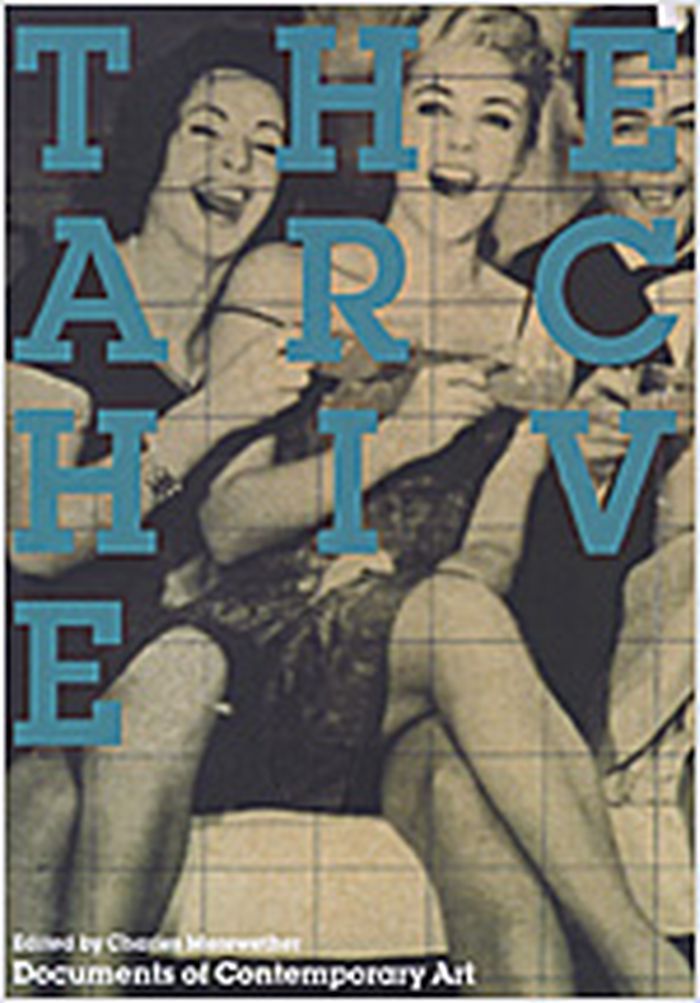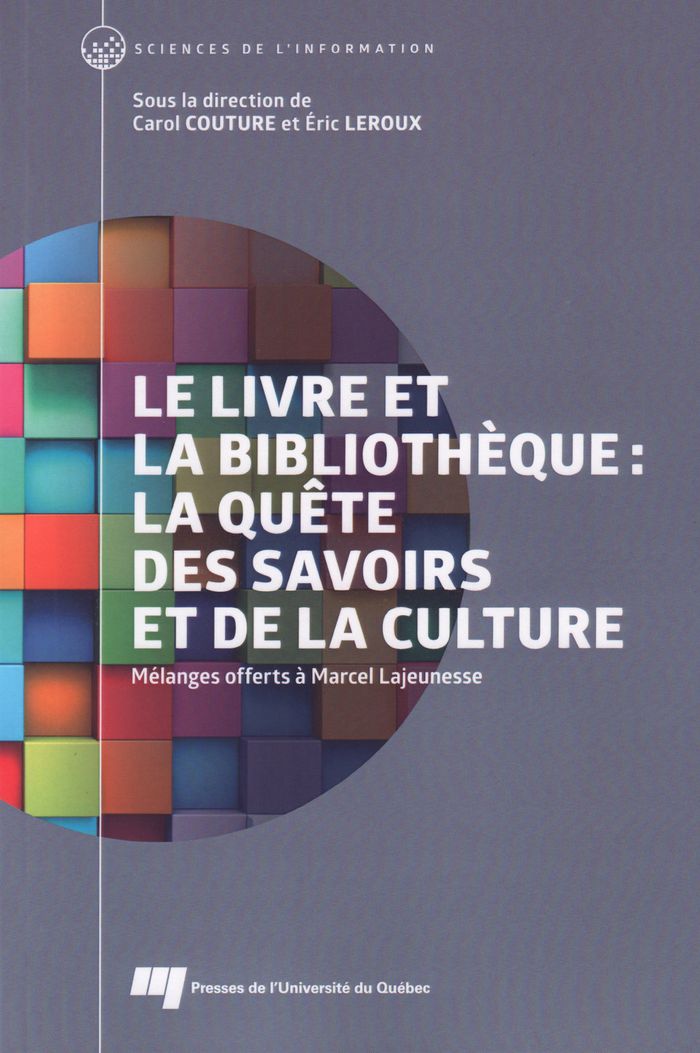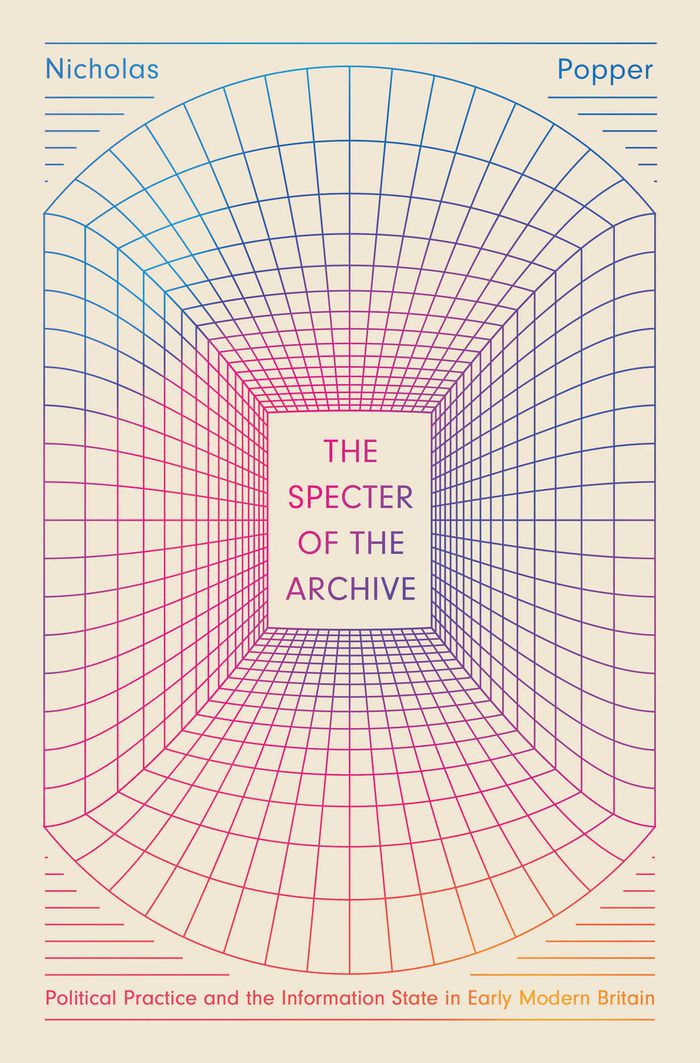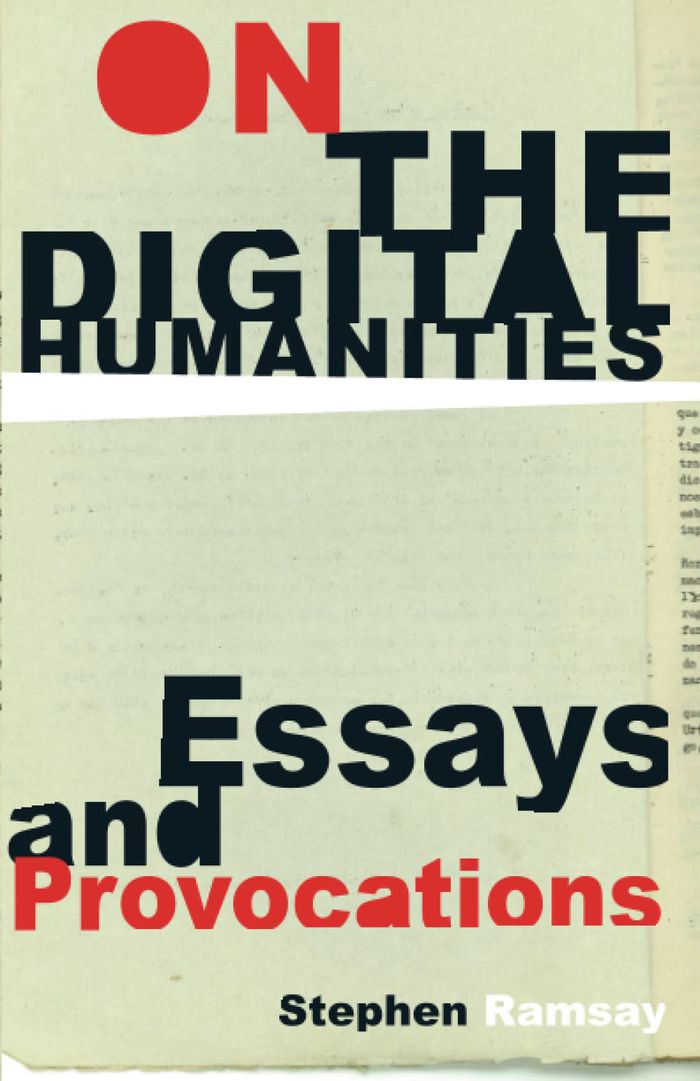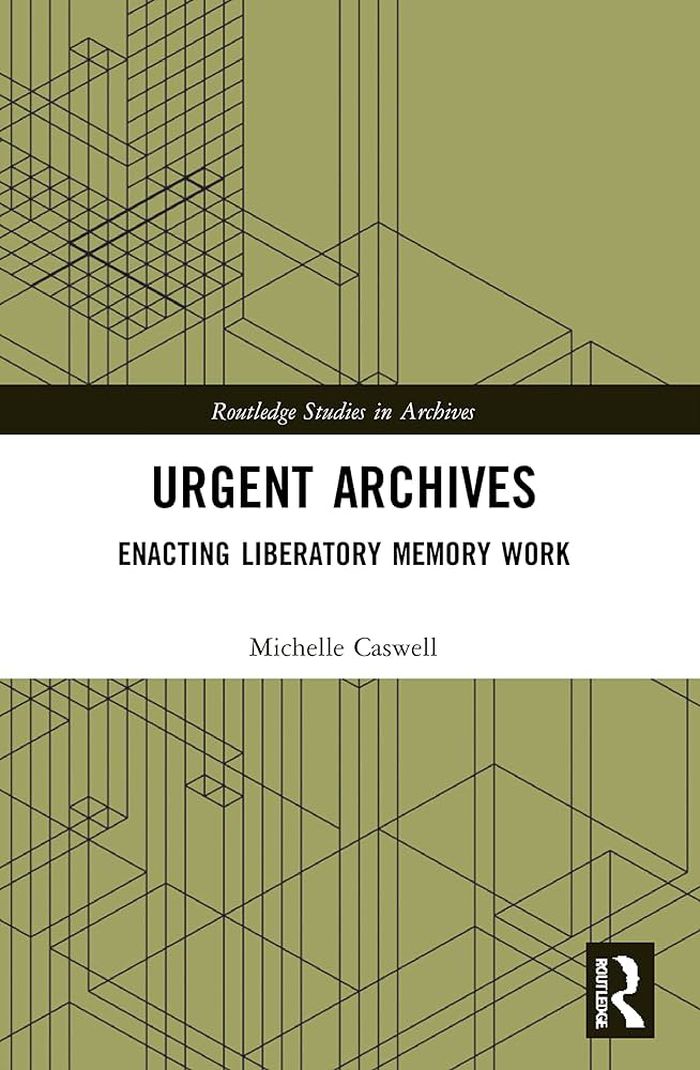$30.00
(disponible sur commande)
Résumé:
In the modern era, the archive--official or personal--has become the most significant means by which historical knowledge and memory are collected, stored, and recovered. The archive has thus emerged as a key site of inquiry in such fields as anthropology, critical theory, history, and, especially, recent art. Traces and testimonies of such events as World War II and(...)
novembre 2006, London / Cambridge
The archive: Documents of contemporary art
Actions:
Prix:
$30.00
(disponible sur commande)
Résumé:
In the modern era, the archive--official or personal--has become the most significant means by which historical knowledge and memory are collected, stored, and recovered. The archive has thus emerged as a key site of inquiry in such fields as anthropology, critical theory, history, and, especially, recent art. Traces and testimonies of such events as World War II and ensuing conflicts, the emergence of the postcolonial era, and the fall of communism have each provoked a reconsideration of the authority given the archive--no longer viewed as a neutral, transparent site of record but as a contested subject and medium in itself. This volume surveys the full diversity of our transformed theoretical and critical notions of the archive--as idea and as physical presence--from Freud's "mystic writing pad" to Derrida's "archive fever"; from Christian Boltanski's first autobiographical explorations of archival material in the 1960s to the practice of artists as various as Susan Hiller, Ilya Kabakov, Thomas Hirshhorn, Renée Green, and The Atlas Group in the present.
Le livre et la bibliothèque: La quête des savoirs et de la culture, mélanges offerts à Marcel Laje
$45.00
(disponible en magasin)
Résumé:
Cet ouvrage présente le livre et la bibliothèque comme objet et lieu privilégiés où s’incarne la quête des savoirs et de la culture. Qu’on pense en mode analogique ou numérique, le livre et la bibliothèque ne sont-ils pas les meilleurs moyens de répondre au besoin essentiel que nous avons tous de connaître, de savoir, de nous développer?? Le livre comme support de la(...)
février 2023
Le livre et la bibliothèque: La quête des savoirs et de la culture, mélanges offerts à Marcel Laje
Actions:
Prix:
$45.00
(disponible en magasin)
Résumé:
Cet ouvrage présente le livre et la bibliothèque comme objet et lieu privilégiés où s’incarne la quête des savoirs et de la culture. Qu’on pense en mode analogique ou numérique, le livre et la bibliothèque ne sont-ils pas les meilleurs moyens de répondre au besoin essentiel que nous avons tous de connaître, de savoir, de nous développer?? Le livre comme support de la connaissance et la bibliothèque comme milieu de recherche du savoir ont fourni de tout temps une contribution importante à l’apprentissage, à la progression, bref à l’évolution de l’être humain. L’ouvrage que nous proposons aborde ce vaste terrain de réflexion dans une approche nationale et internationale avec un regard historique, actuel et tourné vers l’avenir.
$41.95
(disponible en magasin)
Résumé:
This critical anthology addresses three often-overlooked issues facing archival organizations: the question of inclusion in or exclusion from the archive; the loss of individuality and specificity in the archive; the danger of homogenization; and the risk that archiving may foster a form of pigeonholing. Since the archive is a fundamental symbolic entity, on the basis of(...)
Productive archiving: Artistic strategies, future memories & fluid identities
Actions:
Prix:
$41.95
(disponible en magasin)
Résumé:
This critical anthology addresses three often-overlooked issues facing archival organizations: the question of inclusion in or exclusion from the archive; the loss of individuality and specificity in the archive; the danger of homogenization; and the risk that archiving may foster a form of pigeonholing. Since the archive is a fundamental symbolic entity, on the basis of which we organize our lives, the past, the present and the future, these issues require exploration. ''Productive archiving'' proposes that artistic treatments of (and interventions in) archives can offer innovative ways to foster new connections and ways of thinking and organizing.
Dopostoria
$40.00
(disponible sur commande)
Résumé:
Who owns the past? Are museum archives and their re-collections of cultural heritage a cult of the dead-and if so, are we living in a necropolis? This book on photography, cemeteries, and the archive evolved out of an experimental research project at the Bibliotheca Hertzianain Rome, with its immense collection of canonic photographs from the history of art and(...)
mars 2023
Dopostoria
Actions:
Prix:
$40.00
(disponible sur commande)
Résumé:
Who owns the past? Are museum archives and their re-collections of cultural heritage a cult of the dead-and if so, are we living in a necropolis? This book on photography, cemeteries, and the archive evolved out of an experimental research project at the Bibliotheca Hertzianain Rome, with its immense collection of canonic photographs from the history of art and architecture. An artist's book, it takes on the form of a description of an unfinished film in five acts-a cinematic fragment, so to speak: ''DOPOSTORIA.'' The title essay by Christoph Keller is complemented by two contributions on burial cultures in prehistory and in modernity from the archaeologist Maria Clara Martinelli and the modern historian Carolin Kosuch. A sequence of collages at the back of the book conjures up a phantasmagorical journey through an ancient-modern Rome.
$45.00
(disponible en magasin)
Résumé:
Si le numérique est désormais ubiquitaire, quels sont les angles morts de ce regard dont le centre est partout et la circonférence nulle part ? C'est à cette question qu'essaient de répondre les 145 entrées et la vingtaine de contributeur·trices de ce glossaire. On y trouvera des expressions-clés, familières ou inattendues, des réflexions originales et des synthèses(...)
janvier 2023
Angles morts du numérique ubiquitaire: Un glossaire critique et amoureux
Actions:
Prix:
$45.00
(disponible en magasin)
Résumé:
Si le numérique est désormais ubiquitaire, quels sont les angles morts de ce regard dont le centre est partout et la circonférence nulle part ? C'est à cette question qu'essaient de répondre les 145 entrées et la vingtaine de contributeur·trices de ce glossaire. On y trouvera des expressions-clés, familières ou inattendues, des réflexions originales et des synthèses pédagogiques sur les profondes ambivalences dont ces angles morts sont le lieu. Ces zones d'ombre marquent en effet à la fois des limites et des lacunes des meilleurs efforts de programmation, condamnant certaines réalités à rester exclues de ce qui (se) compte dans notre monde numérisé. C'est pour nous permettre de mieux naviguer parmi ces ambivalences que cet ouvrage propose quelques éléments d'un vocabulaire commun du numérique ubiquitaire. Il se veut critique, parce que les formes prises par les exploitations actuelles du numérique sont souvent inquiétantes et demandent à être restructurées. Il se dit amoureux pour renouer avec une veine d'espoirs et d'émerveillements devant les potentiels d'émancipation et d'intelligence collectives dont reste porteuse la computation.
$33.95
(disponible sur commande)
Résumé:
A social history of AI that finally reveals its roots in the spatial computation of industrial factories and the surveillance of collective behaviour. What is AI? A dominant view describes it as the quest ''to solve intelligence,'' a solution supposedly to be found in the secret logic of the mind or in the deep physiology of the brain, such as in its complex neural(...)
The eye of the master: A social history of artificial intelligence
Actions:
Prix:
$33.95
(disponible sur commande)
Résumé:
A social history of AI that finally reveals its roots in the spatial computation of industrial factories and the surveillance of collective behaviour. What is AI? A dominant view describes it as the quest ''to solve intelligence,'' a solution supposedly to be found in the secret logic of the mind or in the deep physiology of the brain, such as in its complex neural networks. ''The eye of the master'' argues, to the contrary, that the inner code of AI is shaped not by the imitation of biological intelligence, but the intelligence of labour and social relations, as it is found in Babbage's ''calculating engines'' of the industrial age as well as in the recent algorithms for image recognition and surveillance. The idea that AI may one day become autonomous (or ''sentient'', as someone thought of Google's LaMDA) is pure fantasy. Computer algorithms have always imitated the form of social relations and the organisation of labour in their own inner structure and their purpose remains blind automation. ''The eye of the master'' urges a new literacy on AI for scientists, journalists and new generations of activists, who should recognise that the ''mystery'' of AI is just the automation of labour at the highest degree, not intelligence per se.
The specter of the archive: Political practice and the information state in early modern Britain
$53.95
(disponible sur commande)
Résumé:
In ''The Specter of the Archive'', Nicholas Popper shows that earlier eras had to grapple with the same problem—how to deal with too much information at their fingertips. He reveals that early modern Britain was a society newly drowning in paper, a light and durable technology whose spread allowed statesmen to record drafts, memoranda, and other ephemera that might(...)
The specter of the archive: Political practice and the information state in early modern Britain
Actions:
Prix:
$53.95
(disponible sur commande)
Résumé:
In ''The Specter of the Archive'', Nicholas Popper shows that earlier eras had to grapple with the same problem—how to deal with too much information at their fingertips. He reveals that early modern Britain was a society newly drowning in paper, a light and durable technology whose spread allowed statesmen to record drafts, memoranda, and other ephemera that might otherwise have been lost, and also made it possible for ordinary people to collect political texts. As original paperwork and copies alike flooded the government, information management became the core of politics. Focusing on two of the primary political archives of early modern England, the Tower of London Record Office and the State Paper Office, Popper traces the circulation of their materials through the government and the broader public sphere.
On the digital humanities
$35.99
(disponible sur commande)
Résumé:
Since its inception, the digital humanities has been repeatedly attacked as a threat to the humanities: warnings from literary and cultural theorists of technology overtaking English departments and the mechanization of teaching have peppered popular media. Stephen Ramsay’s ''On the digital humanities'', a collection of essays spanning the personal to the polemic, is a(...)
On the digital humanities
Actions:
Prix:
$35.99
(disponible sur commande)
Résumé:
Since its inception, the digital humanities has been repeatedly attacked as a threat to the humanities: warnings from literary and cultural theorists of technology overtaking English departments and the mechanization of teaching have peppered popular media. Stephen Ramsay’s ''On the digital humanities'', a collection of essays spanning the personal to the polemic, is a spirited defense of the field of digital humanities. A founding figure in what was once known as 'humanities computing,' Ramsay has a well-known and contentious relationship with what is now called the digital humanities (DH). Here Ramsay collects and updates his most influential and notorious essays and speeches from the past fifteen years, considering DH from an array of practical and theoretical perspectives. The essays pursue a broad variety of themes, including the nature of data and its place in more conventional notions of text and interpretation, the relationship between the constraints of computation and the more open-ended nature of the humanities, the positioning of practical skills and infrastructures in both research and pedagogical contexts, the status of DH as a program for political and social action, and personal reflections on the author’s journey into the field as both a theorist and a technologist. These wide-ranging essays all center around one idea: that DH not forsake its connection to the humanities. While 'digital humanities' may sound like an entirely new form of engagement with the artifacts of human culture, Ramsay argues that the field well reveals what is most essential to humanistic inquiry.
$72.50
(disponible sur commande)
Résumé:
"Urgent archives" argues that archivists can and should do more to disrupt white supremacy and hetero-patriarchy beyond the standard liberal archival solutions of more diverse collecting and more inclusive description. Grounded in the emerging field of critical archival studies, this book uncovers how dominant western archival theories and practices are oppressive by(...)
Urgent Archives: Enacting liberatory memory work
Actions:
Prix:
$72.50
(disponible sur commande)
Résumé:
"Urgent archives" argues that archivists can and should do more to disrupt white supremacy and hetero-patriarchy beyond the standard liberal archival solutions of more diverse collecting and more inclusive description. Grounded in the emerging field of critical archival studies, this book uncovers how dominant western archival theories and practices are oppressive by design, while looking toward the the radical politics of community archives to envision new liberatory theories and practices. Based on more than a decade of ethnography at community archives sites including the South Asian American Digital Archive (SAADA), the book explores how members of minoritized communities activate records to build solidarities across and within communities, trouble linear progress narratives, and disrupt cycles of oppression. Caswell explores the temporal, representational, and material aspects of liberatory memory work, arguing that archival disruptions in time and space should be neither about the past nor the future, but about the liberatory affects and effects of memory work in the present.
$33.00
(disponible en magasin)
Résumé:
How does media architecture distribute suspicion and trust? What is a collage of media architecture? How is media architecture vectored? How can media architecture address privilege? These questions and conceptual provocations aim to challenge the binary of techno-optimism and technological agoraphobia, offering a platform for developing new, critically and contextually(...)
novembre 2023
Provocations on media architecture
Actions:
Prix:
$33.00
(disponible en magasin)
Résumé:
How does media architecture distribute suspicion and trust? What is a collage of media architecture? How is media architecture vectored? How can media architecture address privilege? These questions and conceptual provocations aim to challenge the binary of techno-optimism and technological agoraphobia, offering a platform for developing new, critically and contextually rooted theories that media architecture might grab hold of. Intentionally open-ended, ''Provocations on Media Architecture'' brings together 21 thought leaders across architecture, visual arts, design, curation, academia and public policy to address these ideas and themes. Authors respond with images and brief texts incorporating the perspective of their own creative and scholarly practice. Entries range from descriptions of relevant artworks and design projects to reflections spawned from first-person encounters with media architecture in situ, scholarly analyses and AI-assisted theory.
